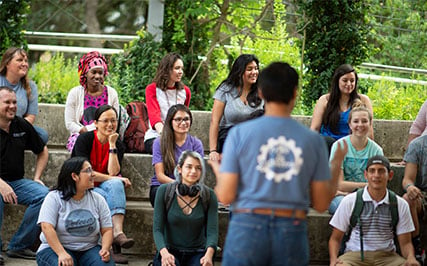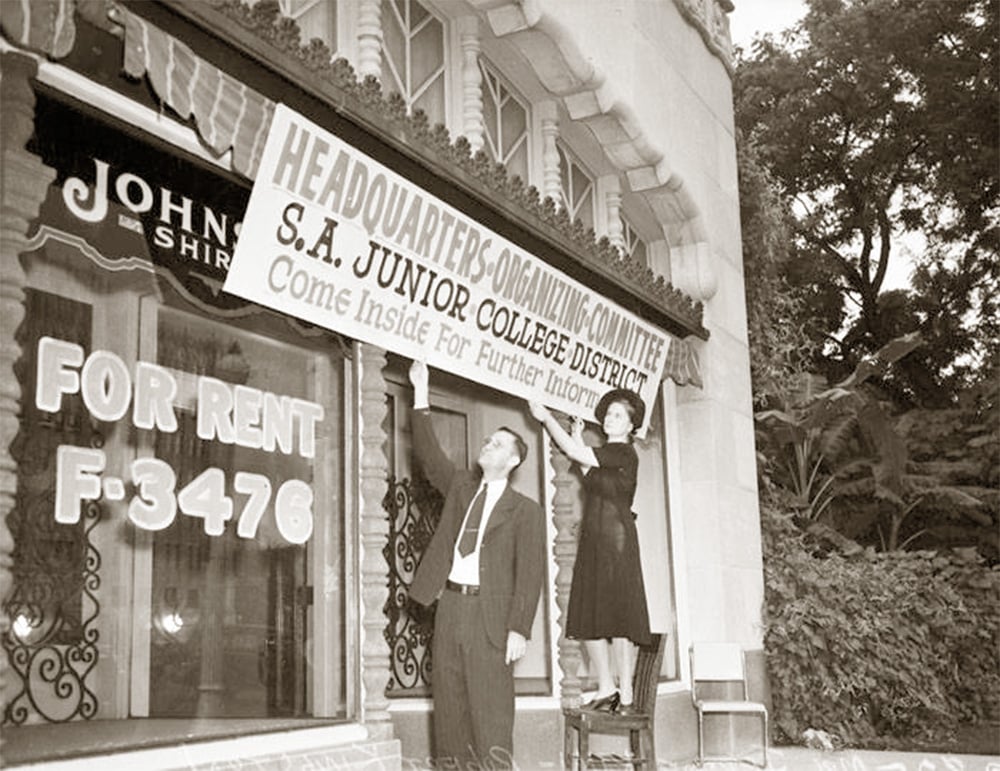Accelerated Community Health Worker
What is the Accelerated Community Health Worker program?
In sixteen weeks, the Accelerated Community Health Worker program prepares you to work in public health, private healthcare delivery systems, community-based social service agencies, and healthcare insurance organizations. Community Health Workers provide services to increase wellness and improve access to health services through outreach activities to target populations. The program will train you to develop positive relationships with individuals who need assistance and support in developing healthy behaviors, utilizing health resources, and gaining educational support to prevent or alleviate the effects of chronic disease. Hospitals, churches, clinics, insurance companies, and nonprofit organizations all need the services of community healthcare workers.
Courses
CHW 1001 - Certification Part I
(All 3 CHW courses must be completed to earn the CHW Certification)
Designed to provide a basic understanding of variables that affect health in the community. Learning Outcomes: List the determinants of health at the individual and community level; implement community assessment techniques to include demographics, mapping, and analysis of governmental agency services; describe tracking techniques of clients and services; specify the dynamics in relationship building among groups, organizations, and individuals in a community; and identify initiatives that will impact the health status of a poor under-served community.
Study of local, regional, and national health care resources. Identification of health organizations, support groups, and health care delivery systems to be used for client referral. Activities include visits to various local agencies and attendance/participation in related activities. Learning Outcomes: Identify various local health-related resources and their eligibility requirements; develop/define methods used for client eligibility and referral; identify the levels and settings of health care and roles of various health occupations within the community; and assist clients in meeting eligibility requirements and accessing needed services and benefits.
CHW 1002 - Certification Part II
(All 3 CHW courses must be completed to earn the CHW Certification)
Study of the cultural aspects and public policy of food and nutrition and the socioeconomic and psychological aspects of nutrition throughout the life cycle. Provides information on developing culturally appropriate community-level interventions to improve nutrition for vulnerable populations; explain the basic nutrition principles from prenatal care to care for the aging; increase knowledge of cultural influences on diet and food preference; assess clients’ diets utilizing interview techniques; calculate BME and caloric intake for normal and abnormal physiological conditions; and locate appropriate community resources and public-sector programs.
Preparation for field work with individuals, families, and groups emphasizing teaching and capacity-building skills. Topics include behavioral change theories, outreach methods, area canvassing, home visiting, group work, community events, and community organizing. Implement neighborhood/rural outreach campaigns; conduct informal counseling and educational sessions with individuals, families, and community groups; organize community events for purposes of developing community capacity for change.
CHW 1003- Clinical Community Health
(All 3 CHW courses must be completed to earn the CHW Certification)
Career-related activities encountered in the student’s area of specialization offered through an individualized agreement among the college, employer, and student. Under the supervision of the college and the employer, the student combines classroom learning with work experience. Includes a lecture component. Learning Outcomes: As outlined in the learning plan, apply the theory, concepts, and skills involving specialized materials, tools, equipment, procedures, regulations, laws, and interactions within and among political, economic, environmental, social, and legal systems associated with the occupation and the business/industry and will demonstrate legal and ethical behavior, safety practices, interpersonal and teamwork skills, and appropriate written and verbal communication skills using the terminology of the occupation and the business/industry.
Program Information
Time Commitment
240 Contact Hours (24 Continuing Education Units)
24 Week Training
- Hybrid: Face to Face (5.0 Hours/week) and Online (5.0 Hours/week)
- F2F Location: Westside Education and Training Center
Certification
- Texas resident
- Training – Completion of an approved DSHS-certified 160-hour competency-based Community Health Worker training program.
CE2Credit eligible
Program Requirements
Possess proficiency in English (reading, writing, and speaking skills)
You are at least eighteen (18) years of age
Must have access to computer/tablet and internet
Enrollment Information
Alex AraizaCoordinator of Workforce Development
Economic & Workforce Development- Center Operations
|
Anna SaucedaSr Spec - Student Success
Economic & Workforce Development- Center Operations |
Students enter as continuing education credit students CHW certification, but a HS diploma or GED is not required. All CE credit courses can be converted to academic courses in the future by completing six hours of academic credit at any Alamo College.




